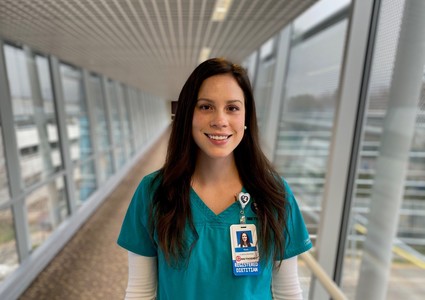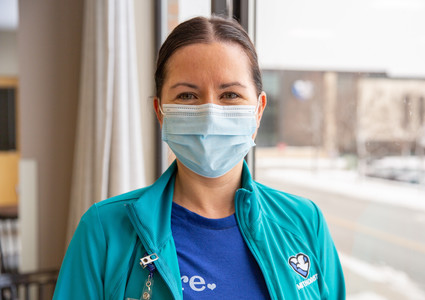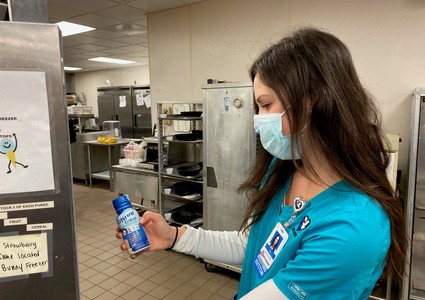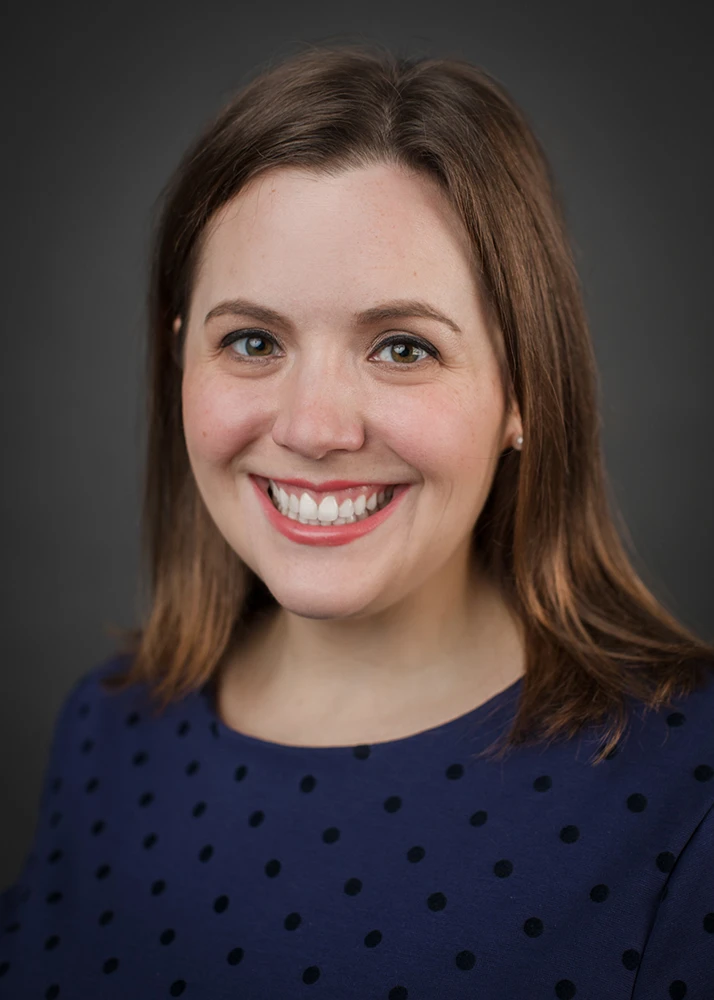




Inspiring Stories
Unsung Heroes of COVID-19: Clinical Dietitians Deliver Key Nutrition
Published: Dec. 16, 2020


At Methodist Hospital, Kara Heckman, RD, LMNT, saw her internship suspended in March due to the pandemic. In August, she returned to the hospital to begin her career as a clinical dietitian assigned to the ICU.
“I knew I was going into the clinical realm,” she said. “I didn’t know it was going to start like this.”
Methodist’s clinical dietitians are among the unsung heroes of the COVID-19 pandemic, working behind the scenes to assess nutritional needs and dealing with long hours, overwhelming patient loads, supply shortages and the loss of physical access to patients that helps them identify malnutrition. Throughout the pandemic, they’ve had to rely on increased communication, their ability to adapt and most importantly, each other.
“Across the system, the dietitians are stellar,” Garvin said. “I genuinely think we have the best of the best. It’s one of the reasons I wanted to work for Methodist – I can rely on my coworkers.”
Overcoming Challenges Together
As clinical dietitians in the ICUs, Garvin and Heckman are responsible for the nutrition of COVID-19 patients in the most advanced stages of the disease. Oftentimes, COVID-positive patients arrive at the hospital dehydrated and malnourished. But due to added precautions, the traditional ways that dietitians assess malnourishment and diet history are gone.
“Usually the dietitian is able to go into the room – able to see the patient,” said clinical nutrition service leader Julie Juddi, RDN, LMNT, LD. “They also do nutrition-focused physical exams where they’re actually feeling for muscle and fat loss on patients. We’re not doing those exams on any patient, regardless of whether they have COVID-19 or not.”
They also can’t have face-to-face conversations with COVID-positive patients that, in the past, helped them assess diet history and form relationships.
“That’s a big difference – we’ve lost the ability to really connect with our patients,” Garvin said. “We’re having to find other ways to gather that subjective data. We miss that one-on-one.”
Sometimes patients can talk on the phone or video chat on an iPad, but dietitians now lean heavily on increased communication with care teams and families.

dietitian Teresa Garvin
“You really rely on your interdisciplinary team and your other health professionals, and you really need to gather facts from them,” Heckman said.
If a COVID-positive patient isn’t able to eat, they’re put on nutrition support within 24-36 hours of ICU admission.
“Because your body is in that disease state, it’s potentially using your fat and muscle just to maintain normal body processes,” Garvin said. “You want to make sure you’re feeding the body so that it’s not just eating itself.”
ICU patients require almost double the amount of protein as non-ICU patients. Dietitians need formulas that are high in protein and low in calories, accounting for the calories received from medications, like the anesthetic propofol. Feeding patients too quickly can cause breathing problems. Overfeeding patients can delay their ability to come off a ventilator. There’s much to consider: Is the patient on mechanical ventilation? Are they proned? Are they supine? Are they losing weight too quickly? Does the patient’s room have a window so the dietitian can do a visual inspection? What can they use instead when the manufacturer runs out of certain tubing or bags?
Garvin, Heckman and their fellow dietitians have gotten through these challenges together.
“The dietitians I work with have been so encouraging and helpful to offer insight when it’s needed because it’s demanding for all of us right now,” Heckman said. “And just seeing the team mentality that a lot of people within the hospital are displaying – I’ve seen it with nurses and pharmacists and doctors. It’s been encouraging. Even though it’s a hard time right now, I do see a lot of checking in on people – asking if they’re OK.”
“You Get to Feel the Difference You’re Making”
Across the health system, Juddi said, the dietitians communicate regularly, sharing advice, articles and educational materials.
“They’ve all come together,” she said. “I think they’ve all done well supporting each other. We’ve tried to keep resiliency in mind and the communication – being able to bounce ideas off each other and pick each other’s brains.”
“I think that everyone cares very deeply about their patients and is committed to ensuring that they’re getting the best care possible,” Garvin said.
Garvin knows that the COVID-positive patients on ventilators and feeding tubes in the ICU won’t necessarily know her and the role she played, but she’s thankful to be a part of their care.
“One of the things I appreciate about being in the clinical setting is that you get to feel the difference you’re making,” she said. “The patients know that they were on a tube feed at some point, but they don’t often really experience it consciously. But I know that they’re getting the energy and the protein and the micronutrients that they need to keep them healthy.”

Heckman said Methodist’s dietitians are more knowledgeable and prepared than they were in the spring, but she worries as the pandemic continues.
“If we continue to spike and aren’t able to plateau or decrease with the colder months coming – there are other problems besides COVID,” she said. “Just because COVID starts doesn’t mean other health diseases stop.”
“I’ve had people ask me: ‘Is COVID as bad as they’re saying it is?’” Garvin said. “Yeah, it’s really bad. And I know it’s hard for people who aren’t in a medical setting or aren’t firsthand seeing tons of people. It can be hard to wrap your head around it."
Looking Forward
If presented with two paths to start her career, Heckman wouldn’t have chosen to begin during a pandemic. But she’s learning and growing in rapid time.
“I can handle more than I thought,” she said.
Garvin wouldn’t have chosen this either, but she’s glad to be in the fight.
“As much as I don’t want there to be a pandemic right now, I do feel honored to be part of the teams caring for these patients,” she said. “I look forward to the point when this is all behind us and we can pat ourselves on the back for getting through it and doing what’s best for our patients.”
More Resources
- Read more stories of Methodist employees living The Meaning of Care.
- Follow Methodist on Facebook, Instagram and Twitter for COVID-19 updates.
- Read about more unsung heroes of the COVID-19 pandemic.


